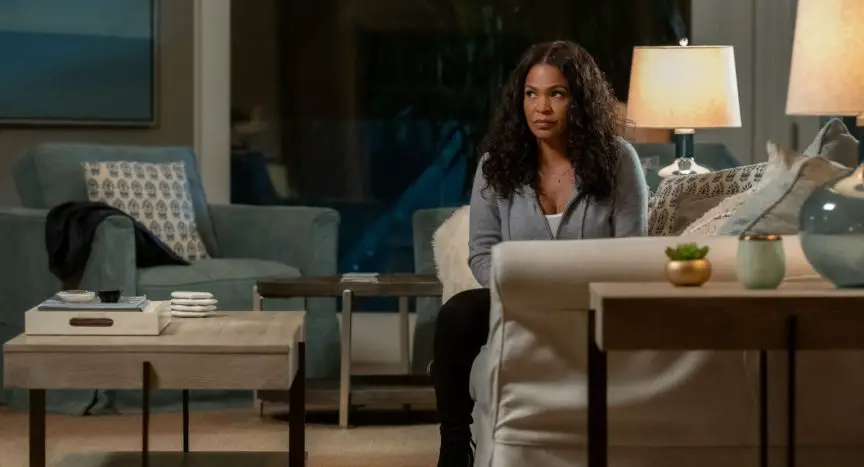When it comes to film scores, the standard has been set a lot higher for the horror genre, thanks to talents like Bernard Hermann, John Carpenter and Christopher Young. A horror film score can quickly transform a scary movie into one that is bone chilling. Someone that has firsthand knowledge of this is composer Matthew Janszen. Mathew knows the horror world very well thanks to his work on The Sandman, The Ward, Finders Keepers, Cucuy: The Boogeyman, and more recently Netflix’s Fatal Affair (which was just listed as number 5 on Netflix’s Top 10 Most Watched Movies in July list). We sat down and talked with the composer about his influences, his process, and much more.
Wicked Horror: Are there certain horror films that you watched growing up that helped shape the way you look at them today?
Matthew Janszen: In my early days, two movies come to mind that peaked my interest in the genre. The first is Hitchcock’s Pyscho, which was how I was introduced to the genre. I remember falling in love with Bernard Hermann’s music. It was unlike anything I was listening to at the time. The second was in my late teenage years when the Scream movies were all the rage. These movies showed me how much fun you can have in the horror genre.

Wicked Horror: Without giving too much away, the opening few minutes of Fatal Affair quickly go from passionate/everything’s great to something very bad. Viewers know that something bad is about to happen, even though the character does not. How do you decide which point of view you are going to score from? The viewers or Deborah’s?
Matthew Janszen: Interesting question! Well the purpose of that opening sequence is to draw the viewer into the story. So I was more focused on creating an atmosphere to introduce the movie. Particularly in the beginning of a story, my job is to open the door into the world of the characters. That being said, my goal was definitely to create an atmosphere of unease.
Wicked Horror: The end scene is pretty music heavy to build the suspense. How long does a scene like this take to score?
Matthew Janszen: That final sequence probably took me a couple days to get a first pass figured out. It’s also near the end of the movie so the writing tends to go quicker because I have already created a majority of the musical devices. I like to work chronologically through the movie because I believe the score develops and grows with the story. By the time I reach an ending sequence I feel like I’ve earned the ability to score it.

Composer Matthew Janszen
Wicked Horror: What do you do for scoring different genres?
Matthew Janszen: Every genre will certainly have some expectations that will be fulfilled for the audience. But I try to ignore any those expectations and just focus on story. The story will always reveal what it needs. This helps me create something that’s new and original to the movie.
Wicked Horror: Did you use any synths in the Fatal Affair score?
Matthew Janszen: Yes! A lot! I definitely used sounds that created unease. After the opening, the movie is one long build. Using synths allowed me to evolve the sonic landscape of the score over time, adding to the uncomfortable atmosphere and suspense. A lot of the synths are drawn from organic sources and then distorted and warped to emphasize the unraveling of the situation between the two main characters, Ellie (Nia Long) and David (Omar Epps).

Wicked Horror: Once we find out what happens to David, the music continues into the next scene, but quickly transitions to a more soothing tone. What is the key to bridging the 2 very different styles without it sounding jarring?
Matthew Janszen: Transitions certainly can be tricky in films that go to the extremes. For me, I think the key is to let the score breath as much as possible, even when the film is moving quickly. To help with that, I tend to use more neutral harmony as to not tip the scales emotionally in one direction or the other too quickly while the music is transitioning.
Wicked Horror: What’s one of the most important lessons you feel you’ve learned when it comes to composing?
Matthew Janszen: So many, but one always stands out which I learned from the legendary Mike Post. I was studying with him as part of the BMI Pete Carpenter Fellowship when I first came to LA. As an exercise he let me score a scene from Law and Order: SVU, just as practice so that we could compare it with what he scored. He pointed out to me that I was trying to avoid dialogue so much that the resulting cue was meandering around without any clear direction. I was focusing so much on scoring each moment in the scene I was missing the bigger picture. He turned to me and said, “at the end of the day you need write a piece of music”. Which basically means don’t get so bogged down scoring a scene that you forget to write a well-constructed musical idea. We are composers after all!
Wicked Horror: Besides Fatal Affair of course, do you have another favorite horror film you have worked on?
Matthew Janszen: I think The Sandman sticks out in my head as one of my favorites. That film really challenged me to think outside my comfort zone. I had to rework the music quite a bit throughout that process, but in the end I learned a lot working on that film and came away a better composer.








